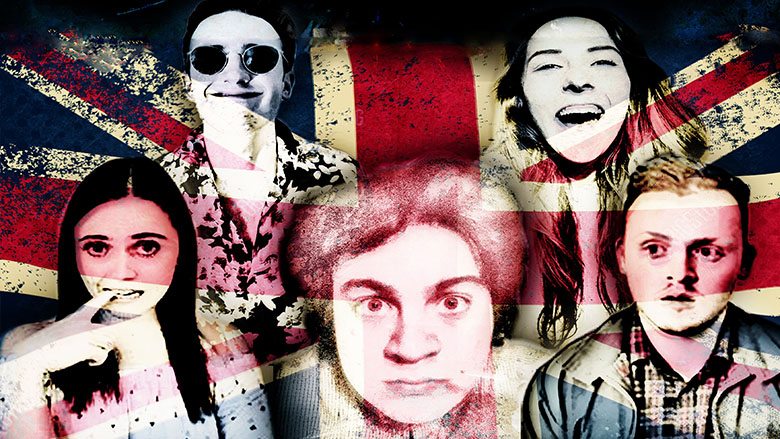The central theme of The British Idles concerns the worsening political climate in Britain and its effects on its twenty-something protagonists, which for them means student debt, a reliance on zero hours contract jobs, or unemployment. This has the potential to make for a witty yet thought-provoking take on issues that are proving to be a growing concern for young people in Britain today.
Unfortunately, the tone is all over the place, with an over-reliance on both stale lad mag humour and on-the-nose dialogue to convey these issues. Examples involve a grotesque date between Gary, one of the lads, and a “Fat Slags” caricature, and a later scene involving him having a breakdown accompanied by violins and news soundbites spelling out the main issues. The remaining dialogue consists of cliched observations and arguments that may have been intended to make the characters appear more realistic but instead feel as if they had been lifted from an episode of Hollyoaks.
The remaining characters are ill-defined, with our protagonists entering one scene by announcing the results of this year’s general election to each other like robotic exposition machines. Little attempt is made to clearly establish the characters and their relationships between each other, and the inclusion of issues such as student loans and anger at the coalition government feels forced and artificial.
An exception is the relationship between student Paul and his friend Lois, which marks one of the few high points of the play. This is represented by well-staged wordless sequences showing their first kiss and a later confrontation in a nightclub that display a subtlety that the rest of the thuddingly obvious play doesn’t attempt. However, this relationship is also not fleshed out adequately as The British Idles ends abruptly with little resolution. There’s a lot that could have been done with the points raised by the play. Sadly, this production wastes any opportunities it might have had to do anything interesting with them.
